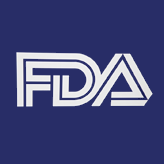FDA Approves DNA Screening Test for Colorectal Cancer
Yesterday, the US Food and Drug Administration (FDA) approved the first DNA-based stool sample screening test for colorectal cancer.
Cologuard is the first FDA-approved non-invasive DNA screening test for colorectal cancer.

Yesterday, the US Food and Drug Administration (FDA) approved the first DNA-based stool sample screening test for colorectal cancer. The new test, called the Cologuard test, was developed by Exact Sciences.
The trial that led to the approval, which compared Cologuard to the fecal immunochemical test (FIT), included 10,023 participants. FIT is a commonly used screening test that detects blood in the stool and is also non-invasive.
“This approval offers patients and physicians another option to screen for colorectal cancer,” said Alberto Gutierrez, PhD, director of the Office of In Vitro Diagnostics and Radiological Health at the FDA’s Center for Devices and Radiological Health, in a press release. “Fecal blood testing is a well-established screening tool and the clinical data showed that the test detected more cancers than a commonly used fecal occult test.”
In clinical testing Cologuard detected 92% of colorectal cancers and 42% of advanced adenomas. FIT detected 74% of cancers and 24% of advanced adenomas. The Cologuard test detects particular DNA mutations in stool samples that can be an early sign of cancer, and people who test positive for these are recommended for colonoscopies.
Cologuard was less accurate than FIT at correctly identifying subjects who in fact did not have colorectal cancer or advanced adenomas. A correct negative screening result was given by Cologuard 87% of the time vs 95% of the time with FIT.
FDA officials stated on Monday that DNA-based stool screening has not been endorsed by federal medical advisers who set screening guidelines. The United States Preventive Services Task Force currently recommends that adults age 50 to 75 be screened for colorectal cancer using sigmoidoscopy, colonoscopy, or fecal occult blood testing.
Officials at the Centers for Medicare & Medicaid Services said that they plan to cover the new test at a frequency of once every 3 years for people aged 50 to 85 with normal risk of developing colorectal cancer. The new test will cost $599 per patient, compared to about $25 for a traditional stool blood test.
According to the American Cancer Society, colorectal cancer is the second leading cause of cancer deaths in the United States, with over 50,000 deaths expected this year. Deaths from the disease have been declining for more than 2 decades, in large part due to screening. Still, only about 60% of people between the ages of 50 to 75 undergo the annual screening suggested by national guidelines, which recommend traditional stool tests every year for people between the ages of 50 and 75 and a colonoscopy every 10 years.
While colonoscopy is the most accurate method for identifying colorectal cancer, many people are reluctant to undergo the procedure because of its invasiveness. The Cologuard test involves using an at-home collection kit to take a stool sample, and shipping the sample to a lab that can identify suspicious DNA markers.